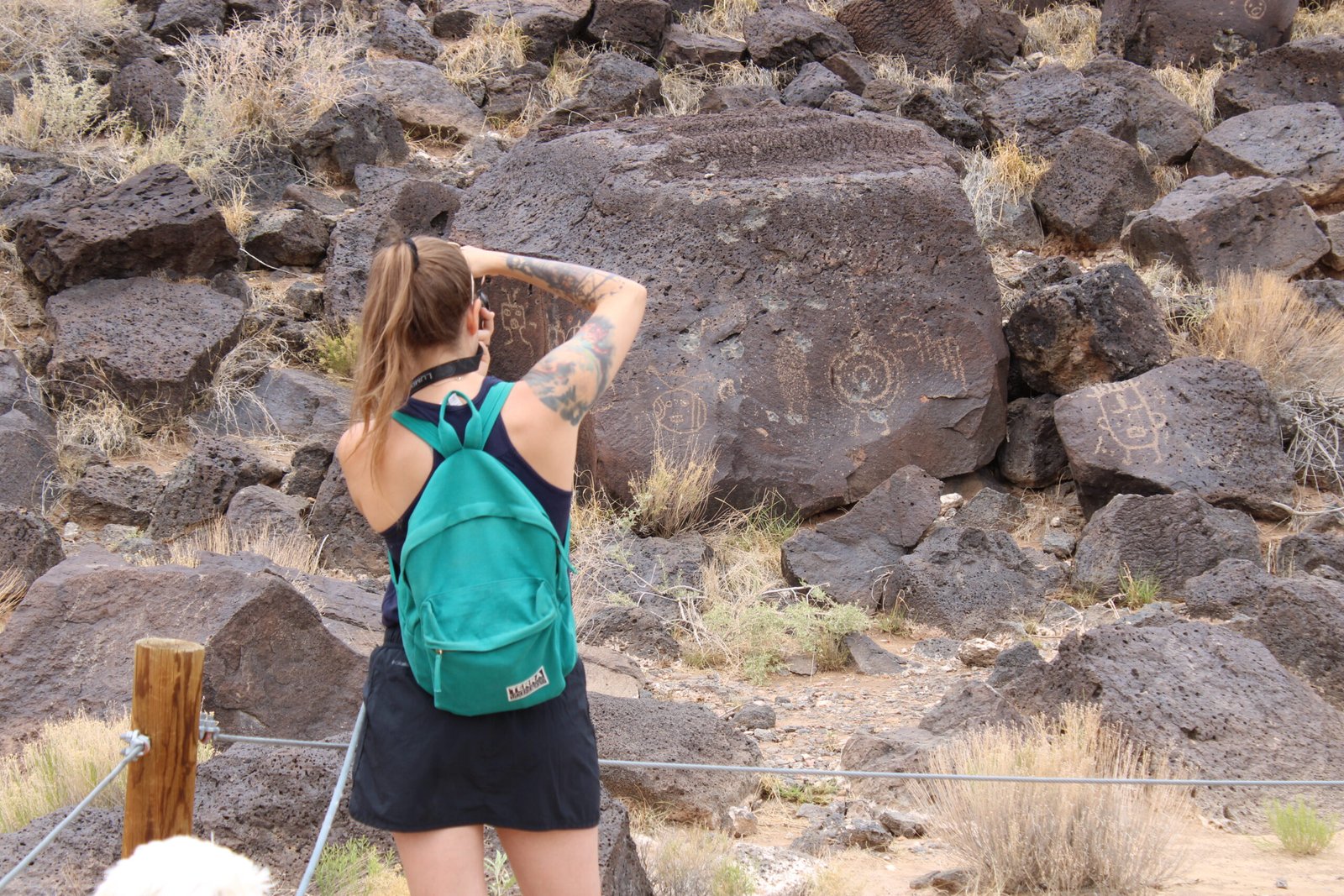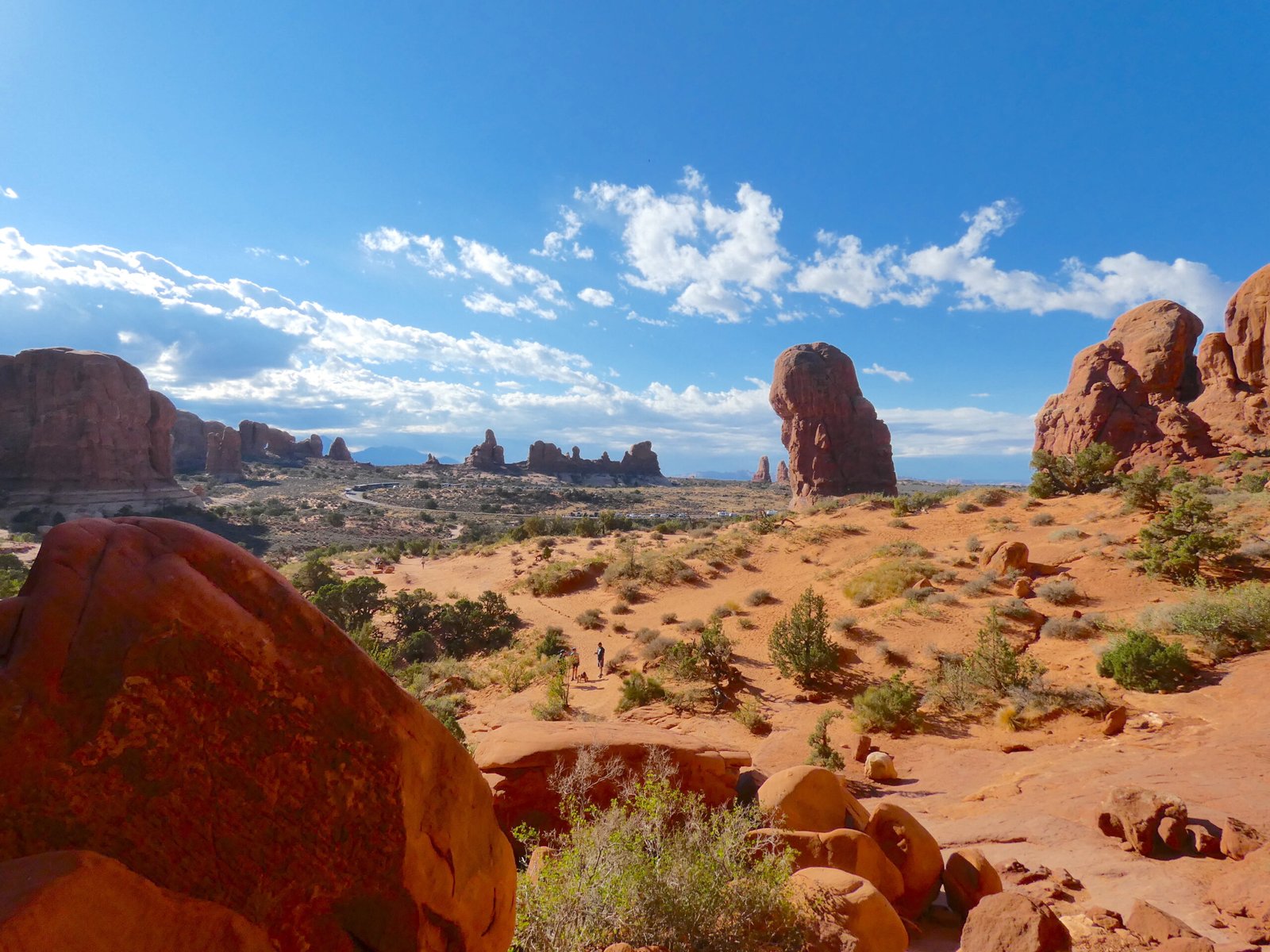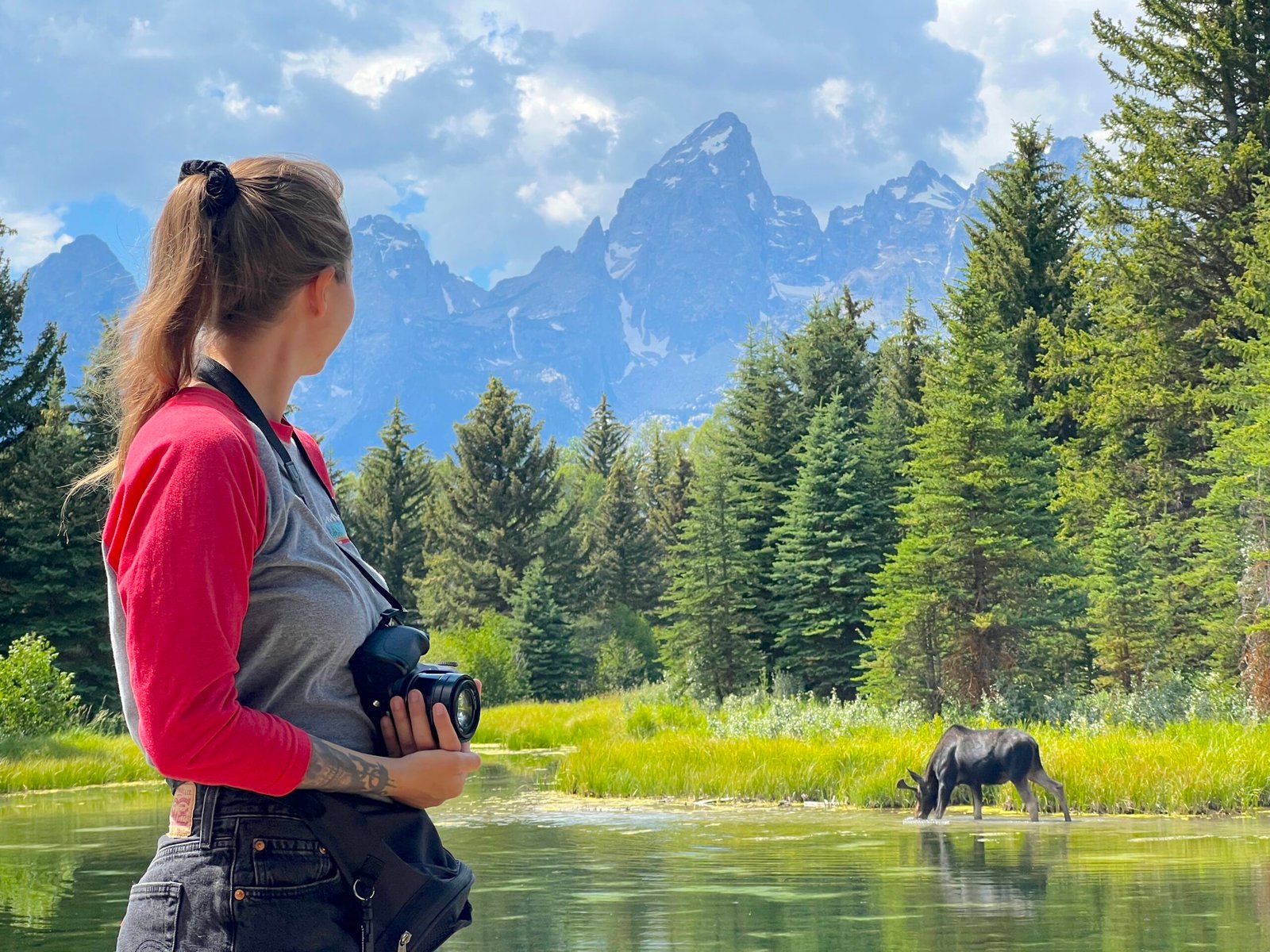Calling all outdoor enthusiasts, Rocky Mountain National Park is a nature lovers paradise. Rugged mountains, fields of wildflowers, and expansive wilderness, it’s no wonder this park is a top summer destination. This breathtaking park covers nearly 250,000 acres of wilderness, preserving 450 miles of rivers & streams, 150 picturesque lakes, and an abundance of wildlife. This was our 8th National Park of our summer trip and it definitely became one of our favorites.
You’ve got to put Rocky Mountain on your bucket list!
In this post, we are sharing 10 great ways to experience Rocky Mountain National Park.
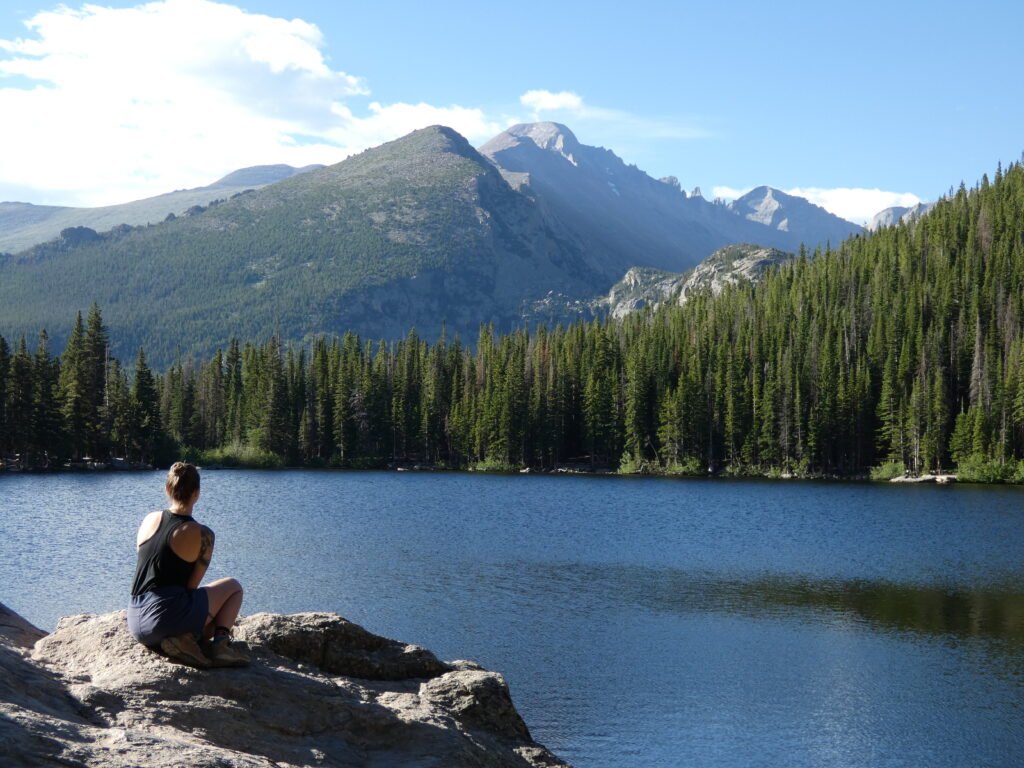
#1. Check out a Visitor Center
Start your exploration of Rocky Mountain at one of the park’s visitor centers. Grab a park map & check out the park movie & exhibit. Stop at the restroom and get the latest scoop from the park ranger. Don’t forget to pick up a souvenir at the park store.

#2. Drive Trail Ridge Road
If you’re not interested in hiking then you must drive Rocky Mountain’s Trail Ridge Road. This 48 mile scenic drive winds up and around 12,000 foot mountains, past lush valleys, with an elevation gain of 4,000 feet, making this the highest paved national park road in the U.S. The drive features scenic overlooks, hiking trails, and the Alpine Visitor Center, the highest national park visitor center.
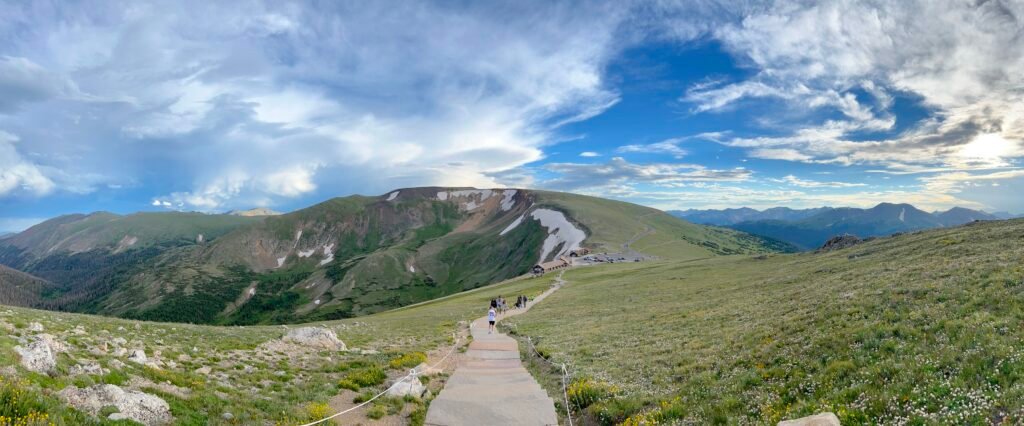
#3. Get on a Trail
A great way to explore the incredible nature of Rocky Mountain National Park. Whether it’s an easy scenic stroll or a challenging day hike, Rocky Mountain has something for everyone. The most popular in the park are Emerald Lake, Dream Lake, Alberta Falls, and Sky Pond.
Park elevation ranges from 7,500 ft to 12,000 ft, so those visiting from lowers elevation may experience altitude sickness. Remember bring plenty of water, snacks, sun protectant, and take your time.
For easy trails consider | Alberta Falls, Dream Lake, Bear Lake, Nymph Lake, Adams Falls, Sprague Lake,
For moderate trails consider | Emerald Lake, Cub Lake, The Loch, Mills Lake, Gem Lake, Lake Haiyaha, Deer Mountain, Ouzel Falls, Calypso Cascades, Bierstadt Lake
For strenuous trails consider | Sky Pond, Chasm Lake, Twin Sisters Peak
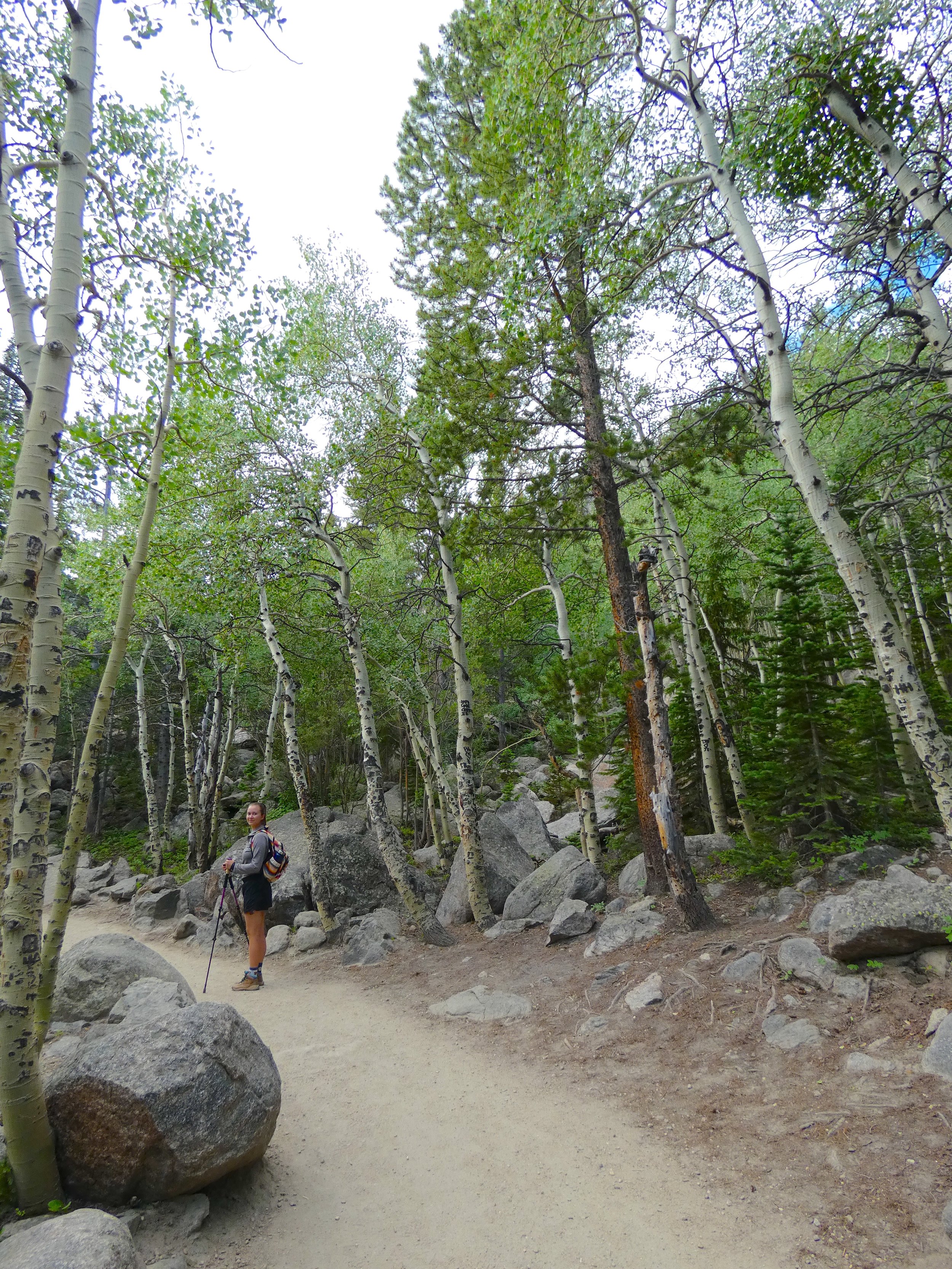
#4. Backpack the Wilderness
For a more in depth exploration of Rocky Mountain National Park pick up a backpacking permit and tour the parks remote wilderness. This is a great way to avoid the crowds and experience the incredible night sky.
For more information about back country camping, check out the park website.
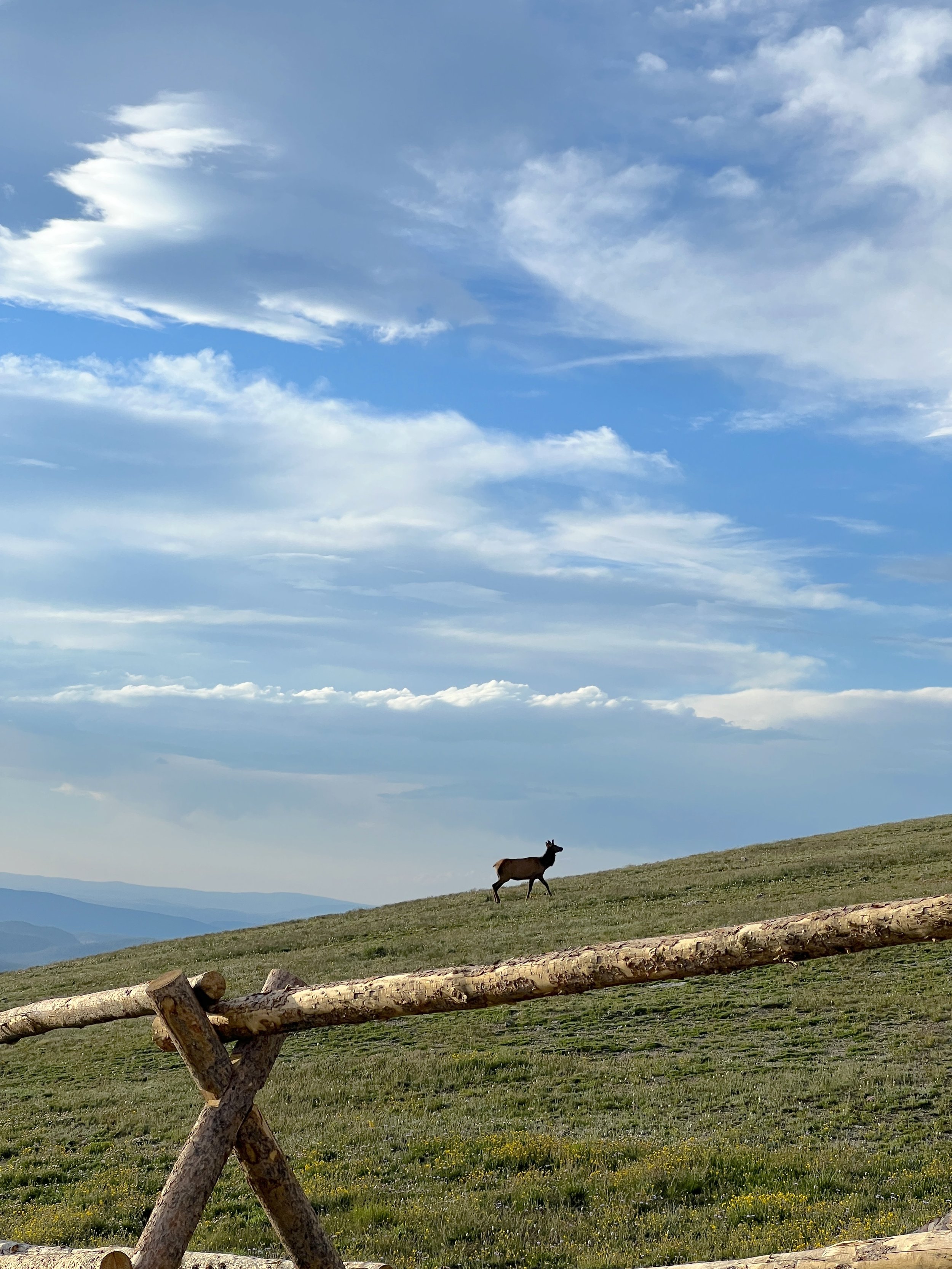
#5. Wildlife Viewing
Rocky Mountain National is one of the top national parks for wildlife viewing. The park is home to 60 species of mammals, including, elk, bighorn sheep, moose, deer, and marmots, as well as, 280 species of birds.
Remember to stay at least 75 feet away when viewing wildlife.
#6. Bicycling
The steep and curvy scenic roads of Rocky Mountain National Park are a hotspot for bicyclists. Popular cycling routes are Trail Ridge Road and Old Fall River Road, open April to November.
When biking in Rocky Mountain, remember to start early, check the weather, wear proper clothing, carry plenty of water & snacks, and of course, watch out for cars,
For more information about biking in Rocky Mountain, visit the park website.
#7. Seasonal Ranger Programs
Rocky Mountain National Park provides numerous ranger programs to learn about the history and geology of the park. Popular programs, such as, Astronomy in the Park, Stories of the Moon & Stars, Bird Walks, and snowshoe walks are available throughout the year.

#8. Fishing
Visitors with a valid Colorado Fishing License are allowed to explore the parks numerous lakes. Brown, brook, rainbow, and cutthroat trout are a few of the species you can find swimming around the lower elevations.
For more information about fishing in Rocky Mountain National Park, visit the park website.
#9. Climbing
For those looking for a thrilling adventure in Rocky Mountain, climb the granite rock walls up Longs Peak. Rock climbing in Rocky Mountain requires no permit, however, park reservations and overnight camping permits are required.
For more information on rock climbing in Rocky Mountain National Park, visit the park website.
#10. Parks as Classrooms
What better way to learn then by bringing the classroom to the park! The National Park System provides a series of curriculum covering topics such as math, science, social studies, and language arts for elementary and middle school learners. A great option for homeschooling or field trips.

Comment below your favorite thing to do at Rocky Mountain National Park!


